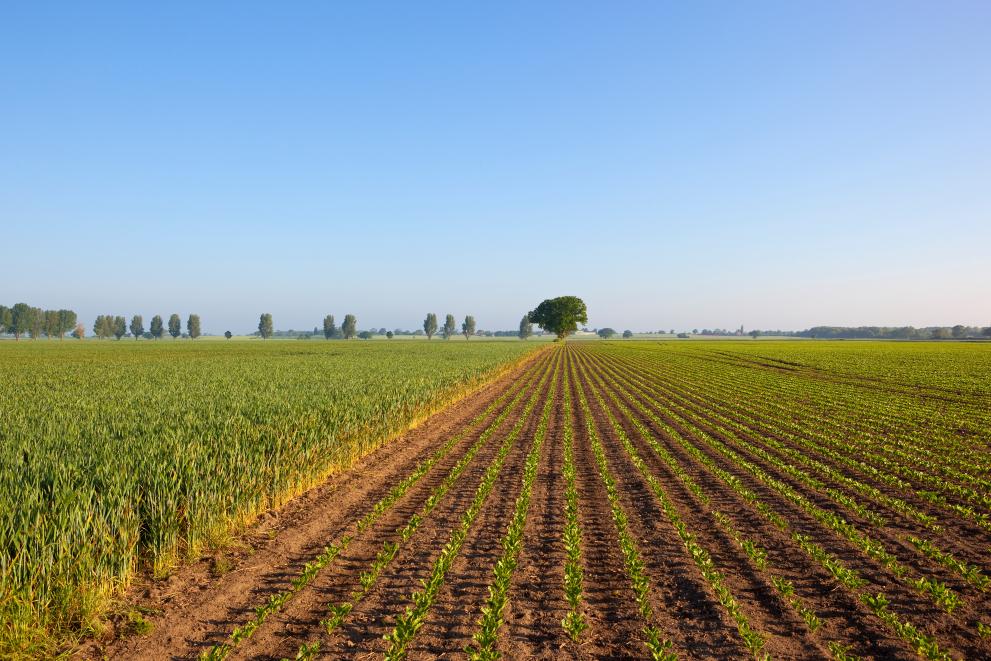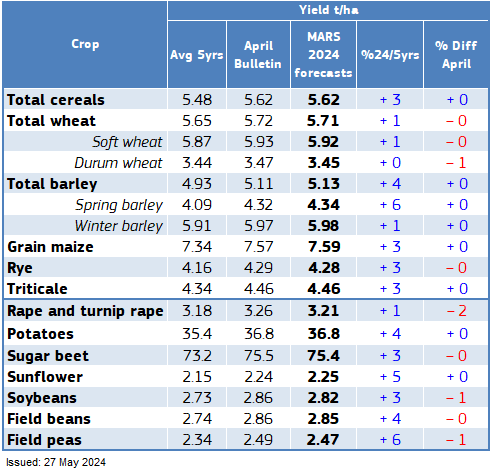
Yield forecasts at EU level were slightly revised downward but remain above the 5-year average. The yield forecast for winter crops further improved for Spain and Portugal, but was reduced for Italy, and several countries of western Europe, as well as for Hungary, where the overall yield outlook remains positive.
Persistently wet conditions challenge crops and farmers in north-western Europe and northern Italy
Wet conditions in large areas in western Europe, as well as in Denmark, and northern Italy, resulted in water logging, high pest pressure and/or delays to sowing, with potentially negative effects on crop yields.
Cold spell in April caused severe damage to fruits and vineyards, but damage to annual crops was limited
An abrupt cold spell in the second half of April severely impacted fruits and vineyards in several parts of Europe, but damage to annual crops is expected to have been limited. The temperature drop was most pronounced in southern and eastern Germany, and bordering regions in Czechia and Poland, as well as in southern Finland.
Water deficit affected crops in several parts of central, southern and eastern Europe
In eastern Germany and Poland, water deficit started to build up; more rain is needed to sustain the so-far-positive outlook. Warm and dry conditions in southern Italy negatively affected the grain filling of winter crops.
In Russia, a distinct water deficit combined with cold spells created unfavourable conditions for winter crops’ development, and caused delays to spring sowing. In Türkiye, yield expectations for winter cereals were moderated by a distinct water deficit in western regions and a heat spell in south-eastern parts of the country.
Further information
Subscribe to the JRC MARS Bulletin | (Unsubscribe from your profile page)
JRC MARS (Monitoring Agricultural Resources) Bulletins
The latest information about global agricultural production hotspots for countries at risk of food insecurity is available on the JRC’s ASAP (Anomaly hot Spots of Agricultural Production).
Details
- Publication date
- 27 May 2024
- Author
- Joint Research Centre
- JRC portfolios




